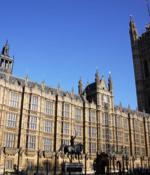Security News

The U.K.'s position as a financial services hub puts it ahead in enterprise-wide IT automation, says Red Hat. Red Hat's report, Thriving through change with enterprise-wide IT automation, surveyed 1,200 IT leaders in the aforementioned four countries about the role of automation in their businesses and the challenges they faced in adopting new technologies.

The latest warning to CNI operators of what the NCSC said is an enduring and significant threat comes after a year of serious assaults on critical services in the UK. Royal Mail International was the target of a serious attack by the LockBit group in January, and this was after a raid on software supplier Advanced forced the NHS to revert to pen and paper once again. The UK and its intelligence partners have also sought to bring attention to the cyber threat faced by allied CNI over the past year, including alerts covering Russia's cyber-espionage-enabling Snake malware and China's attacks on US organizations.

The UK government has set in train plans to introduce legislation requiring tech companies to let it know when they plan to introduce new security technologies and could potentially force them to disable when required. They could mean the Home Office get advance access to technical details of security measures employed by popular big tech platforms so it can access user data and monitor nefarious activity.

A "Debt management company" is itself facing a bill from Britain's data regulator for sending hundreds of thousands of text messages to households that opted not to receive marketing junk mail. Misery loves company, and another entry in the ICO hall of shame this week is MCP Online, which is nursing a £55,000 penalty for making an unspecified number of "Unsolicited financial services calls about pensions," the ICO said.

Global leaders from 28 nations have gathered in the U.K. for an influential summit dedicated to AI regulation and safety. Day one of the AI Safety Summit culminated in the signing of the "Landmark" Bletchley Declaration on AI Safety, which commits 28 participating countries - including the U.K., U.S. and China - to jointly manage and mitigate risks from artificial intelligence while ensuring safe and responsible development and deployment.

A UK minister for policing has called for forces to double their use of algorithmic-assisted facial recognition in a bid to snare more criminals. Chris Philp MP, Minister of State for Crime, Policing and Fire, said both the use of live and retrospective facial recognition should increase following a commitment to spend £17.5 million on "a resilient and highly accurate system" to search all databases of images the police can access.

With the assent of King Charles, the United Kingdom's Online Safety Act has become law, one that the British government says will "Make the UK the safest place in the world to be online." The Online Safety Act, which began in April 2019 as the Online Harms White Paper when Theresa May served as Prime Minister and was passed by Parliament in September, aims to tame the internet.

Opinion The UK Extension to the EU-US Data Privacy Framework will enter into force on October 12, allowing certifying entities to easily transfer personal data from the UK to the US. Transferring personal data across the Atlantic would otherwise be prohibited under the UK General Data Protection Regulation without transfer mechanisms. As the UK is no longer a member of the European Union, the DPF does not automatically enable the transfer of personal data from the UK to the US. Transfers of personal data from the UK will require a Data Bridge.

Onstage at TechCrunch Disrupt 2023, Meredith Whittaker, the president of the Signal Foundation, which maintains the nonprofit Signal messaging app, reaffirmed that Signal would leave the U.K. if the country's recently passed Online Safety Bill forced Signal to build "Backdoors" into its end-to-end encryption. "We would leave the U.K. or any jurisdiction if it came down to the choice between backdooring our encryption and betraying the people who count on us for privacy, or leaving," Whittaker said.

Top admin, HR managers, devs go on transatlantic deny-list The US and UK governments named and sanctioned 11 Russians said to be connected to the notorious Trickbot cybercrime crew this week.…